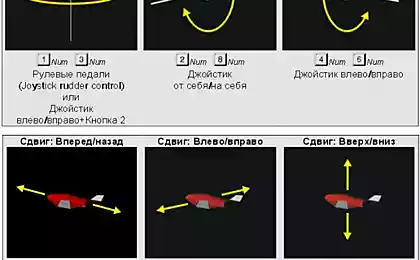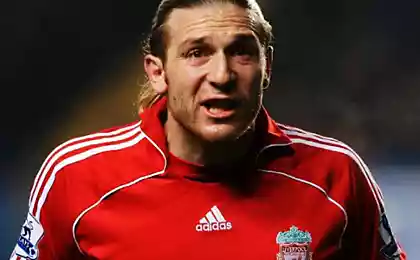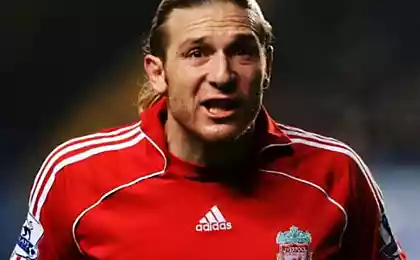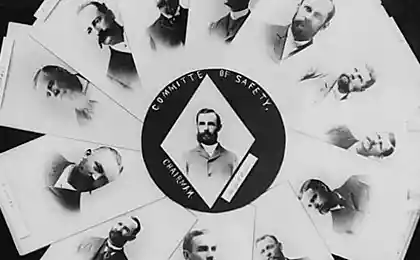485
4 rules of conscious life
Once I had a chance to talk with CEOs and other members of the management quite well-known Corporation. Everyone complained about how they spend days on end in uninterrupted meetings or check email, or "extinguish fires". They readily acknowledged that such a lifestyle does not benefit neither their work nor their health.But to cope with this problem, they could not. And variations on this theme I hear on a daily basis. It's this insane turn, a vicious cycle that cannot be broken. We respond to work that "lies on the table", whether it is important or not too. We are prisoners of urgency.

To prioritize, you need to think, but to think, it takes time, and many of my friends are managers going at that speed, if only to keep up with the trains that they seem to stop and think they just can't afford.
Very often, with a sort of masochistic pleasure they answer: "Yes." It seems to agree is safer, will avoid conflict and do not spend time checking out, so important was the request to which you responded.
The truth is, Yes, makes us also a rush of adrenaline. A long time, "hooked on speed" — the speed of our lives on the adrenaline of constant activity. We confuse activity with productivity, "more" believe in "better" and the question "what next?" sounds much more common question: "why?". But as Gandhi said, "no," said because of a deep conviction that better "Yes" is said just to please, or worse, to avoid problems.
The ability to discreetly opt out — one of the most underrated skills in our lives. In a world of relentless demands and infinite options, we first need to set up a hierarchy of the most important tasks. At the same time and understand what should be focused less on what is generally left alone.
To make the right choice, you need to regularly get away from the Madding crowd. Only priostanovivshih — that is, abandoning another consistent demand or seductive source of instant gratification, we leave ourselves space to think, digest information, to evaluate it and to understand what is happening to us.
These pauses also give the opportunity to gather, to replenish their reserves and thoughtfully to correct the course — it will save us time, when we again hit on a hot griddle routine.
Four rules will help you to prioritize and live a more focused and meaningful:
Mark in the calendar all that is important, but not urgent (according to the classification of Stephen Covey). Urgent, and so you are likely to make, but with the clutter, particularly difficult, at risk of delay. It is important to build rituals, that is, to impute responsibility to perform specific things at a specific time, to bring them to automatism and did not spend their extra thought and effort. Including take in calendar time for brainstorming, strategic and long term thinking.
Recently I added a new ritual to completely "leave communications" in the evenings after dinner and on weekends. While only two weeks practicing, but I already had the head space for thoughts and imagination.
Take time before leaving work — at least 15-20 minutes to cycle through the events of the day and outline the most important plans for tomorrow. Clarify priorities — what the researcher Peter Gollwitzer calls them "implementation intention" can help you the next day to focus on the Essentials in spite of all the inevitable distraction.
Do the most important things from the list in the morning for 90 minutes. At this time, close the Cabinet, turn off mail and phone. The more fully you will be able to focus, the more you make and the higher the quality of the work. When you are finished, take a break to recuperate. Most people in the morning are most concentrated, and the forces we have at this time enough. If you can't start the day with this, put these 90 minutes of concentrated work at the earliest hour that you can select. If you are one of those rare people who feels a surge of energy in the afternoon, take to the most important Affairs of the evening.
Plan at least one break in the morning and one in the afternoon and do not attempt to dine without leaving your desktop. These breaks is an excellent opportunity to recover, otherwise the energy will be every hour to subside. And at the same time, you can quickly check how things are going. Here are two basic questions that need to ask themselves during the break:
I had to do what I have to do, and if not, why not? What I want to do before the next break and what to refuse to deal with a major? Catch of the day. published
P. S. And remember, only by changing their consumption — together we change the world! ©
Source: hbr-russia.ru/lichnaya-effektivnost/upravlenie-vremenem/p16320/

To prioritize, you need to think, but to think, it takes time, and many of my friends are managers going at that speed, if only to keep up with the trains that they seem to stop and think they just can't afford.
Very often, with a sort of masochistic pleasure they answer: "Yes." It seems to agree is safer, will avoid conflict and do not spend time checking out, so important was the request to which you responded.
The truth is, Yes, makes us also a rush of adrenaline. A long time, "hooked on speed" — the speed of our lives on the adrenaline of constant activity. We confuse activity with productivity, "more" believe in "better" and the question "what next?" sounds much more common question: "why?". But as Gandhi said, "no," said because of a deep conviction that better "Yes" is said just to please, or worse, to avoid problems.
The ability to discreetly opt out — one of the most underrated skills in our lives. In a world of relentless demands and infinite options, we first need to set up a hierarchy of the most important tasks. At the same time and understand what should be focused less on what is generally left alone.
To make the right choice, you need to regularly get away from the Madding crowd. Only priostanovivshih — that is, abandoning another consistent demand or seductive source of instant gratification, we leave ourselves space to think, digest information, to evaluate it and to understand what is happening to us.
These pauses also give the opportunity to gather, to replenish their reserves and thoughtfully to correct the course — it will save us time, when we again hit on a hot griddle routine.
Four rules will help you to prioritize and live a more focused and meaningful:
Mark in the calendar all that is important, but not urgent (according to the classification of Stephen Covey). Urgent, and so you are likely to make, but with the clutter, particularly difficult, at risk of delay. It is important to build rituals, that is, to impute responsibility to perform specific things at a specific time, to bring them to automatism and did not spend their extra thought and effort. Including take in calendar time for brainstorming, strategic and long term thinking.
Recently I added a new ritual to completely "leave communications" in the evenings after dinner and on weekends. While only two weeks practicing, but I already had the head space for thoughts and imagination.
Take time before leaving work — at least 15-20 minutes to cycle through the events of the day and outline the most important plans for tomorrow. Clarify priorities — what the researcher Peter Gollwitzer calls them "implementation intention" can help you the next day to focus on the Essentials in spite of all the inevitable distraction.
Do the most important things from the list in the morning for 90 minutes. At this time, close the Cabinet, turn off mail and phone. The more fully you will be able to focus, the more you make and the higher the quality of the work. When you are finished, take a break to recuperate. Most people in the morning are most concentrated, and the forces we have at this time enough. If you can't start the day with this, put these 90 minutes of concentrated work at the earliest hour that you can select. If you are one of those rare people who feels a surge of energy in the afternoon, take to the most important Affairs of the evening.
Plan at least one break in the morning and one in the afternoon and do not attempt to dine without leaving your desktop. These breaks is an excellent opportunity to recover, otherwise the energy will be every hour to subside. And at the same time, you can quickly check how things are going. Here are two basic questions that need to ask themselves during the break:
I had to do what I have to do, and if not, why not? What I want to do before the next break and what to refuse to deal with a major? Catch of the day. published
P. S. And remember, only by changing their consumption — together we change the world! ©
Source: hbr-russia.ru/lichnaya-effektivnost/upravlenie-vremenem/p16320/
Mobi is a mobile charger for electric vehicle
Rospotrebnadzor demanded to withdraw from shops Persil and Fairy
























